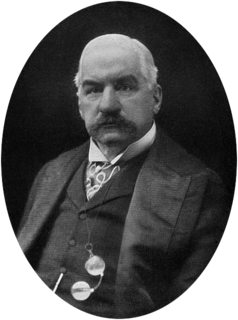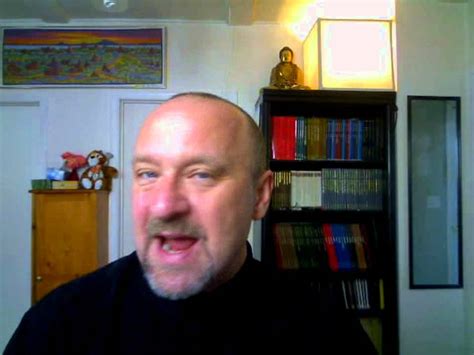A Quote by Albert Camus
There are always reasons for murdering a man. But there is no justification for his existence.
Related Quotes
In this world laws are written for the lofty aim of "the common good" and then acted out in life on the basis of the common greed. In this world irrationality clings to man like his shadow so that the right things get done for the wrong reasons - afterwards, we dredge up the right reasons for justification. It is a world not of angels but of angles, where men speak of moral principles but act on power principles; a world where we are always moral and our enemies always immoral; a world where "reconciliation" means that when one side gets the power and the other side gets reconciled to it.
Socialism is the doctrine that man has no right to exist for his own sake, that his life and his work do not belong to him, but belong to society, that the only justification of his existence is his service to society, and that society may dispose of him in any way it pleases for the sake of whatever it deems to be its own tribal, collective good.
Just as man as a social being, cannot in the long run exist without a tie to the community, so the individual will never find the real justification for his existence, and his own spiritual and moral autonomy, anywhere except in an extramundane principle capable of relativizing the overpowering influence of external factors.
To defend something is always to discredit it. Let a man have a warehouse full of gold, let him be willing to give away a ducat to every one of the poor - but let him also be stupid enough to begin this charitable undertaking of his with a defense in which he offers three good reasons in justification; and it will almost come to the point of people finding it doubtful whether indeed he is doing something good. But now for Christianity. Yes, the person who defends that has never believed in it.
Private property is a natural fruit of labor, a product of intense activity of man, acquired through his energetic determination to ensure and develop with his own strength his own existence and that of his family, and to create for himself and his own an existence of just freedom, not only economic, but also political, cultural and religious.
If we have dwelled on Godel's work at some length, is it because we see it in the mathematical analogy of what we would call the the ultimate paradox of man's existence. Man is ultimately subject and object of his quest. While the question whether the mind can be considered to be anything like a formalized system, as defined in the preceding paragraph, is probably unanswerable, his quest for an understanding of the meaning of his existence is an attempt at formalization.
I'm afraid that in the United States of America today the prevailing doctrine of justification is not justification by faith alone. It is not even justification by good works or by a combination of faith and works. The prevailing notion of justification in our culture today is justification by death. All one has to do to be received into the everlasting arms of God is to die.
Just as the office worker dreams of murdering his hated boss and so is saved from really murdering him, so it is with the author; with his great dreams he helps his readers to survive, to avoid their worst intentions. And society, without realizing it respects and even exalts him, albeit with a kind of jealousy, fear and even repulsion, since few people want to discover the horrors that lurk in the depths of their souls. This is the highest mission of great literature, and there is no other.
The ascent to the divine Life is the human journey, the Work of works, the acceptable Sacrifice. This alone is man's real business in the world and the justification of his existence, without which he would only be an insect crawling among the ephemeral insects on a speck of surface mud and water which has managed to form itself amid the appalling immensities of the physical universe.
He had put his hand up in class, a declaration of existence, a claim that he knew something. And that was forbidden to him. They could give a number of reasons for why they had to torment him; he was too fat, too ugly, too disgusting. But the real problem was simply that he existed, and every reminder of his existence was a crime.
I am willing to allow that smoking is a moral weakness, but on the other hand, we must beware of the man without weaknesses. He is not to be trusted. He is apt to be always sober and he cannot make a single mistake. His habits are likely to be regular, his existence more mechanical and his head always maintains its supremacy over his heart. Much as I like reasonable persons, I hate completely rational beings.
Creating new people, by having babies, is so much a part of human life that it is rarely thought even to require a justification. Indeed, most people do not even think about whether they should or should not make a baby. They just make one. In other words, procreation is usually the consequence of sex rather than the result of a decision to bring people into existence. Those who do indeed decide to have a child might do so for any number of reasons, but among these reasons cannot be the interests of the potential child. One can never have a child for that child’s sake.








































